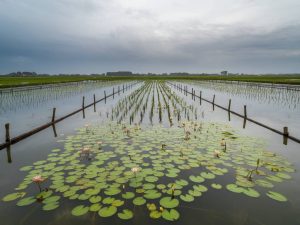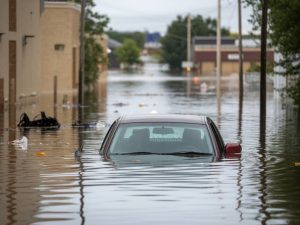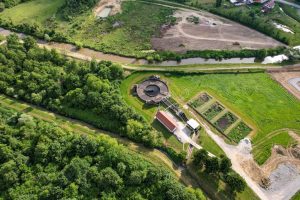How does biodiversity loss impact human health?

How does biodiversity loss impact human health?
The Invisible Web: Linking Biodiversity and Human Health
Imagine walking through a lush forest, the vibrant tapestry of life unfolding with each step. The sound of rustling leaves and the chirp of birds paint a picture of serenity and health. But what if these harmonious symphonies started to fade? What if the rich biodiversity that we so often take for granted began disappearing? The implications stretch far beyond the loss of beauty and serenity; they encroach right into the heart of human health.
Unseen Allies: Biodiversity as the Backbone of Health
In our daily lives, we seldom pause to consider how deeply our well-being is intertwined with the web of biodiversity. Healthy ecosystems offer services that are foundational to human survival, such as clean air and water, fertile soil for crops, and a bounty of medicinal resources. The medicinal wonders are particularly fascinating; indeed, over 70% of drugs used in cancer treatment are derived from nature.
But here’s a crucial question: as wildlife species face extinction, what happens to these invaluable resources? The extinction of a single plant species could mean the loss of potential medical breakthroughs. For example, the rosy periwinkle from Madagascar, once on the brink of extinction, provided vital compounds used in treating leukemia and lymphoma in children.
The Ripple Effect: How Biodiversity Shields Us from Diseases
We often perceive forests and wild landscapes merely as distant frontiers. Yet, they are guardians, acting as buffers against zoonotic diseases. Reduced biodiversity leads to a higher transmission rate of diseases from animals to humans. But why?
Let’s take Lyme disease as an example. In areas where biodiversity is rich, the presence of diverse species dilutes the transmission cycle of the bacteria. But in degraded environments, it’s often the more disease-prone species that remain. Without buffers, the transmission to humans becomes more probable. Essentially, less biodiversity equates to more risks to our health.
Climate Change: An Accomplice in Biodiversity Loss
Climate change stands as a formidable force exacerbating the loss of biodiversity. Rising temperatures, shifting weather patterns, and extreme events are altering habitats at a pace many species cannot adapt to. This isn’t merely an environmental issue; it’s a public health crisis looming on the horizon.
Consider how shifting climate zones affect agriculture. Farmers, dependent on biodiversity, struggle with changing precipitation patterns and reduced pest control, which forces them to resort to chemical pesticides. These substances leach into the water supply, affecting both human health and aquatic ecosystems.
Urban Spaces: A Breathing Reflection of Biodiversity
Even in urban environments, where concrete seems to eclipse green spaces, the presence of biodiversity plays a vital role in enhancing our daily lives. Parks and urban forests serve as green lungs, providing respite and cleaning the air we breathe. They mitigate urban heat island effects, reduce flooding, and even enhance mental well-being by offering a slice of nature amidst the hustle and bustle. If you’ve ever found peace in a city park, you’ve experienced firsthand the health benefits of urban biodiversity.
Action Steps: How Can We Protect Biodiversity?
While the statistics about biodiversity loss can be alarming, every small action contributes to a larger change. What can each of us do to protect this vital resource? Here are some steps that can bring about real impact:
- Support Local Conservation Efforts: Engage with organizations working on biodiversity projects in your area. Every small contribution can aid big changes.
- Choose Sustainable Products: Opt for products and brands that prioritize sustainable practices and have minimal impact on the environment.
- Educate and Advocate: Spread awareness about the significance of biodiversity through social platforms, enlightening more people with knowledge.
- Plant Native Species: Whether you have a garden or just a few pots on a balcony, choosing native plants can aid local wildlife.
- Reduce, Reuse, Recycle: Minimize waste, and try to maintain an eco-friendly lifestyle wherever possible.
Embracing the Complexity of Nature
In understanding how biodiversity impacts human health, we come to appreciate the subtle yet powerful connections that bind every living being on this planet. Each species, no matter how small, plays a part in the grand symphony of life. Recognizing this web of life not only affirms our role in protecting it but also guides us towards a healthier, more sustainable future. So, next time you step into nature, take a moment to listen and appreciate the myriad of lives around you, knowing your health is intricately connected to theirs.







